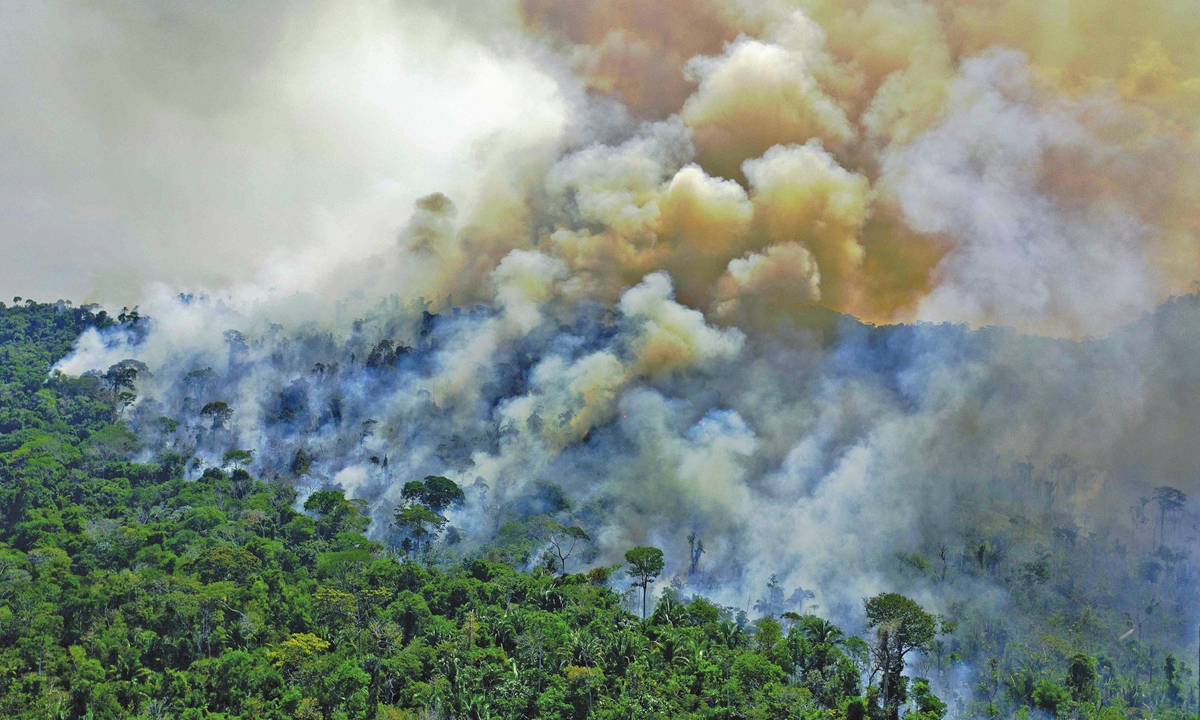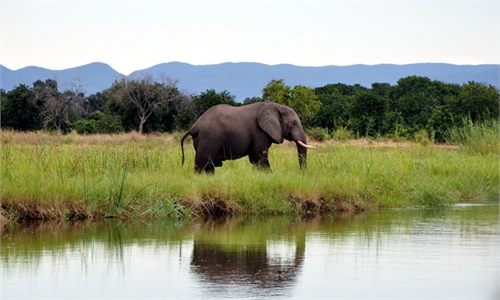Rich nation appetites driving tropical deforestation
Rising demand in wealthy countries for dozens of commodities ranging from coffee to soybeans has stepped up the pace of deforestation in the tropics, researchers said on Monday.

In five of those G7 nations - Japan, Germany, France, Britain and Italy - 91 to 99 percent of their "deforestation footprint" was in foreign countries, half of that in the tropics. That footprint has grown most rapidly in China and India, but per capita tree loss is still far below that of rich nations.
"Most forests are in poorer countries that are overwhelmed with economic incentives to cut them down," lead author Nguyen Tien Hoang, an expert in environmental modeling and mapping at the Research Institute for Humanity and Nature in Kyoto, told AFP.
"We show that richer countries are encouraging deforestation through demand for commodities."
Combining data on forest loss and global supply chains, Hoang and his colleague Keiichiro Kanemoto showed which nations were buying what commodities from where.
Cocoa consumption in Germany, for example, "poses a very high risk to forests" in Cote d'Ivoire and Ghana, Hoang noted.
Deforestation in coastal Tanzania, meanwhile, is directly linked to Japanese demand for agricultural products. In Vietnam, forest loss in the Central Highlands is mainly driven by coffee drinkers.

View of fire in area of the Amazon rainforest, near Porto Velho, Rondonia state, Brazil, on August 16, 2020. Photo: VCG
Even as North America and Europe expand forest cover within their own borders, efforts to slow forest loss in the global south through offset schemes and direct payments have been overwhelmed by these appetites, they reported in the journal Nature Ecology & Evolution. The first country-by-country quantification of how rich-nation imports drive deforestation showed that each person in G7 nations accounts for, on average, the loss of four trees somewhere else in the world per year. In 2015, the last year for which figures were available across all the datasets examined, that totaled more than 3 billion trees, the researchers found.In five of those G7 nations - Japan, Germany, France, Britain and Italy - 91 to 99 percent of their "deforestation footprint" was in foreign countries, half of that in the tropics. That footprint has grown most rapidly in China and India, but per capita tree loss is still far below that of rich nations.
"Most forests are in poorer countries that are overwhelmed with economic incentives to cut them down," lead author Nguyen Tien Hoang, an expert in environmental modeling and mapping at the Research Institute for Humanity and Nature in Kyoto, told AFP.
"We show that richer countries are encouraging deforestation through demand for commodities."
Combining data on forest loss and global supply chains, Hoang and his colleague Keiichiro Kanemoto showed which nations were buying what commodities from where.
Cocoa consumption in Germany, for example, "poses a very high risk to forests" in Cote d'Ivoire and Ghana, Hoang noted.
Deforestation in coastal Tanzania, meanwhile, is directly linked to Japanese demand for agricultural products. In Vietnam, forest loss in the Central Highlands is mainly driven by coffee drinkers.




